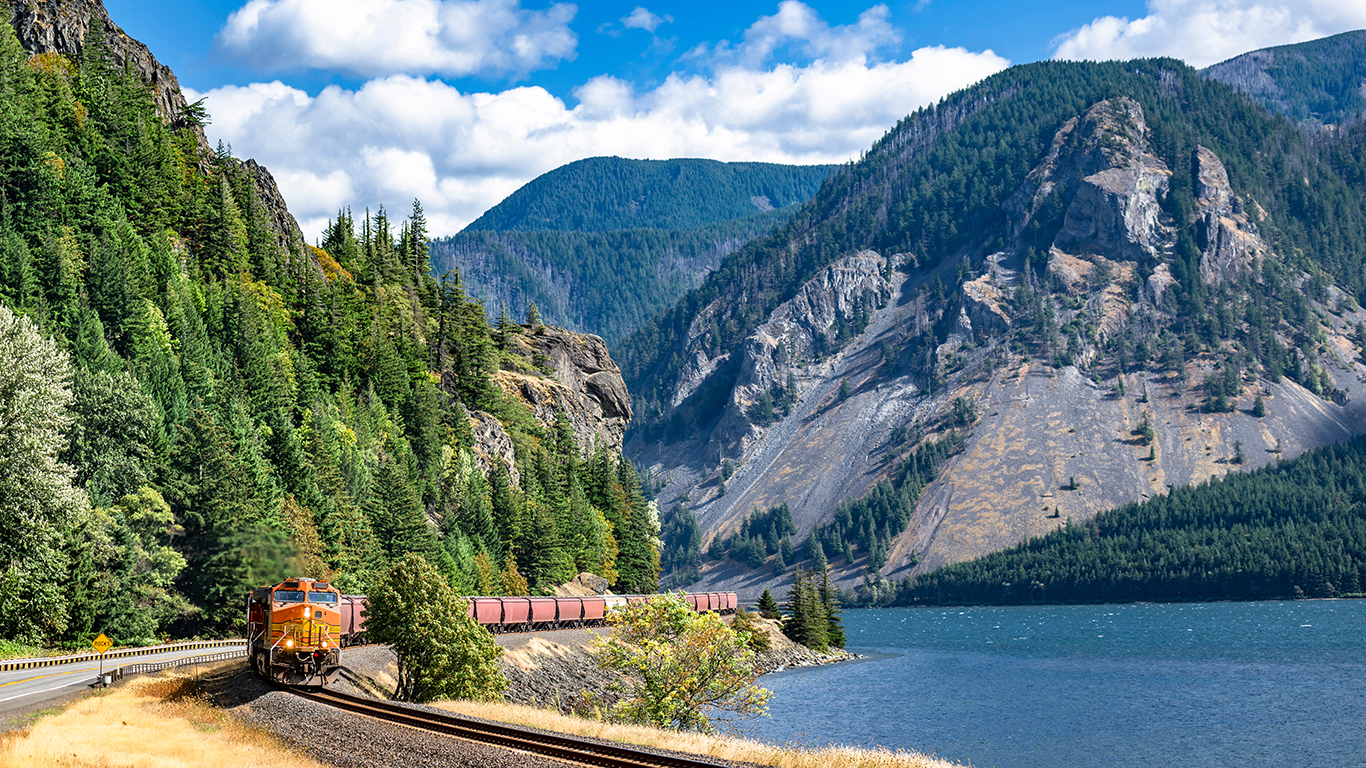America’s freight rail industry is one of the most efficient and cost-effective transportation networks in the world. More than 600 freight railroads operate across the U.S. freight rail network. Unlike other modes of freight transportation, the railroad industry itself funds the maintenance and modernization of the nation’s nearly 140,000-mile rail network to provide safe and efficient transportation for goods from nearly every facet of the U.S. economy. According to the American Association of Railroads (AAR), from 1980 to 2023, America’s freight railroads spent about $810 billion on:
- Locomotives
- Freight cars
- Tracks
- Bridges
- Tunnels
- Other infrastructure and equipment
The freight rail network is a major transport provider for goods flowing to and from Mexico and Canada. As the nation’s heavy hauler, U.S. freight railroads serve a critical role in the supply chain and are a cornerstone of an integrated U.S. transportation system that also includes trucking, air, and ports. The top goods transported by U.S. railroads include agriculture & food products, coal, chemicals, construction materials, crude oil, motor vehicles & parts, and paper & lumber. America’s freight railroads also support job creation and increase our nation’s economic productivity and competitiveness.
Cross-Border Trade
Cross border rail freight movement between the United States, Canada, and Mexico is crucial to our nation’s economy and prosperity. Increased trade volumes can strain freight rail and trucking infrastructure among these partners, making continued cooperation and communication among all three countries vital.
Over the last few years, certain U.S. border crossings with Mexico have been intermittently closed or have required additional cargo screenings, primarily to address U.S. concerns about large volumes of migrants crossing the borders. These closures and additional screenings have caused unplanned delays to ripple through the supply chain. In addition, drug and human trafficking have been major border security concerns, with freight rail a major focus of trafficking. SCS continues to work closely with other U. S. Government agencies in our discussions with Mexico and Canada on these issues.
Rail Safety Concerns
The rail system’s integrity has been questioned by both the public and some USG entities in recent years, with several derailments that included hazardous materials. The most prominent event occurred on February 3, 2023, in East Palestine, Ohio, when a Norfolk Southern train derailed and several rail cars carrying hazardous materials left the tracks and caught on fire. The tragedy highlighted the importance of rail safely to U.S. citizens and communities, especially those situated near our nation’s rail lines. On top of safety issues, these derailments can cause major delays that create supply chain bottlenecks throughout the U.S rail system. SCS continues to work with industry and trade associations to reduce risk on our nation’s rail lines.
Labor Disputes and Rail Strikes
Labor disputes and rail strikes in the United States, Mexico, and Canada can disrupt and strain our nation’s supply chains. In 2022, during the most recent U.S. rail negotiations, SCS worked with the National Economic Council (NEC) to highlight the risks of a U.S. rail strike for our economy and the safety of the nation as a whole. USG cooperation with industry helped avert a major strike at that time, and this work with NEC laid the groundwork for identifying and addressing major concerns if a strike were to occur in the future. In addition, in August 2024, the Canadian Government had to intervene in the lock out of Canadian rail operators from Canada’s two largest companies, Canadian National (CN) and Canadian Pacific Kansas City (CPKC), following over a year of contentious labor negotiations between the railroads and the Teamsters Canada Rail Conference. Canada’s rail strike would not have caused as much of a disruption to the U.S. economy as to the Canadian economy, but delayed delivery of critical commodities produced in Canada such as fertilizers would have strained numerous U.S. industries such as agriculture, if a longer lock out/strike were to occur. SCS worked with industry to identify risks and potential impact from a strike, and with interagency partners like the NEC to highlight the impact that a U.S. rail strike would have on our economy.
